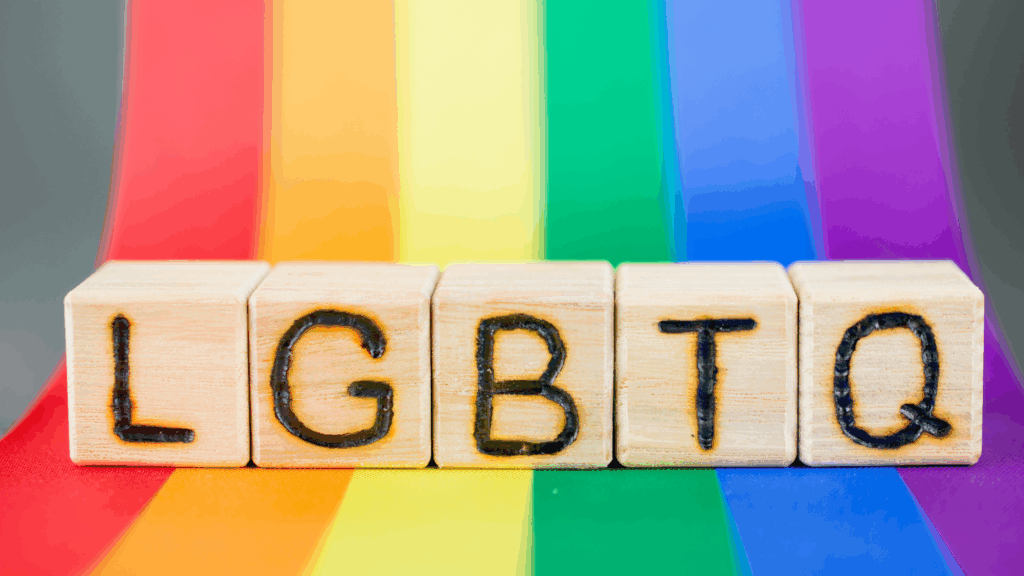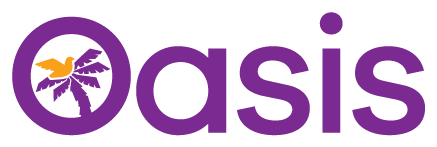
⚠️ Trigger warning: This article discusses domestic abuse, self-harm, suicide, and substance misuse.
Pride month may be over, but domestic abuse in LGBTQ+ relationships doesn’t stop when the celebrations end.
At Oasis, we understand that living with domestic abuse is relentless. That’s why we provide inclusive, trauma-informed support year-round for anyone experiencing domestic abuse, no matter their gender, sexuality or identity.
For many LGBTQ+ survivors, the trauma of abuse is deeply tied to mental health, leaving lasting scars of anxiety, depression, or self-blame.
Domestic abuse and mental health are deeply connected. Abuse can take a devastating toll on emotional wellbeing, often leaving survivors with long-term mental health challenges. For LGBTQ+ survivors, the risks are even higher. Research shows LGBTQ+ people are more likely to experience mental health problems than heterosexual, cisgender people (Galop, 2019), and abuse compounds this vulnerability.
In fact, Safe Lives reports that over half (51%) of LGBTQ+ survivors accessing domestic abuse support have mental health problems, compared to 38% of survivors outside this community. These figures show the scale of challenges – and the urgent need for services that understand and respond to the intersection of abuse, identity, and mental health.
How domestic abuse impacts mental health
Experiencing domestic abuse can leave lasting psychological effects. Survivors often describe living with low self-esteem, guilt, or shame – feelings that may have been reinforced by abusers telling them they are worthless, or through victim-blaming from others.
For LGBTQ+ survivors, these feelings of shame can be magnified. Some may have faced discrimination in other parts of their lives or been told – explicitly or implicitly – that they ‘deserve’ abuse because of who they are. Over time, these harmful messages can contribute to internalised shame and self-blame, making recovery even more difficult.
Victim-blaming is when survivors are told they are somehow at fault for the abuse they have suffered. But the truth is clear: the responsibility always lies with the perpetrator.
For LGBTQ+ survivors, these feelings of shame can be magnified. Some may have faced discrimination in other parts of their lives or been told – explicitly or implicitly – that they ‘deserve’ abuse because of who they are. Over time, these harmful messages can contribute to internalised shame and self-blame, making recovery even more difficult.
Mental health problems such as anxiety, depression, and complex PTSD are common among survivors. Living in a constant state of fear can trigger panic attacks, nightmares and/or flashbacks. Being isolated from loved ones or community networks can fuel hopelessness. For some, these overwhelming pressures lead to self-harm, suicidal thoughts, or suicide attempts.
28% of LGBTQ+ victims of domestic abuse have attempted suicide
Safe Lives data paints a stark picture: 28% of LGBTQ+ victims of domestic abuse have attempted suicide, compared to 15% of victims who are not LGBTQ+. Self-harm rates are also more than twice as high among LGBTQ+ survivors.
The scale of these issues is alarming. Refuge estimates that around three women each week take their own lives due to domestic abuse. Tragically, more victims die by suicide linked to abuse than are killed by abusive partners. Behind each statistic is a life, a family, and a story of pain that might have been prevented with the right support.
One survivor, after receiving support from Oasis and specialist help, reflected:
“I have had no panic attacks since having these sessions. I still have anxiety, but I am able to better manage it. I have stopped self-harming. I don’t feel as much of an urge and when I do I am able to better manage it.”
Another survivor said:
“You showed me full support and took away my pain. I strongly believe I would have ended my life without my Oasis support worker.”
This is the difference trauma-informed support can make: transforming despair into hope and survival into recovery.
Coping mechanisms and substance misuse
For some survivors, the pain of abuse and its mental health impacts may lead to coping strategies such as alcohol or drug use. Trauma and substance misuse are closely linked; Safe Lives found that 10% of victims with mental health needs reported drug misuse, and 14% reported alcohol misuse.
Unfortunately, substance misuse can become another barrier to seeking help. Abusers may exploit it, undermining survivors’ credibility or threatening to disclose their use to authorities. Survivors themselves may feel ashamed, struggle to identify or remember incidents of abuse, or find decision-making harder – making escape even more challenging.
At Oasis, we recognise these complexities. We work with survivors who may have developed dependencies – such as using cannabis to cope with mental health problems – and support them to heal their relationship with substances, whilst also addressing the trauma that underpins it.
LGBTQ+ identities and unique forms of abuse
Being LGBTQ+ can shape how abuse is experienced. Survivors may face additional, identity-specific tactics of control, such as threats of being ‘outed’ to family, employers, or communities before they are ready. Everyone has the right to choose if, when, and how they come out. Abusers exploiting this right inflict a particularly cruel form of control.
Other LGBTQ+ survivors may face conversion ‘therapy,’ spiritual/ritual abuse, or repeated invalidation of their identities, including undermining their self-expression. This can lead to internalised homophobia, biphobia or transphobia, leaving survivors feeling ashamed of – or even hating – who they are.
Some LGBTQ+ survivors may face forced marriage or honour-based abuse. If abuse occurs within families from multiple perpetrators, survivors may feel as though they have no-one that understands them, especially if isolated from their community.
LGBTQ+ survivors that are also immigrants could be threatened to be taken back to their country of origin, which may be unsafe for them due to differences in legislation surrounding LGBTQ+ people.
For transgender survivors, abuse can include:
- Being forced to present as a gender they do not identify with.
- Having pronouns deliberately ignored or being ‘deadnamed.’
- Being denied access to gender-affirming healthcare, such as hormone treatments.
- Having their body scrutinised, surgical scars exposed, or gender history disclosed without consent.
Such abuse not only harms survivors’ sense of self but can also lead to severe mental health problems. Transgender people are more likely to experience repeat victimisation, amplifying trauma.
Bisexual survivors also face disproportionately high levels of abuse. A staggering 61% of bisexual women report being raped, stalked, or physically abused by a partner.
These are not isolated issues – they are patterns of violence and control that demand recognition.
Barriers to seeking support
Despite the clear links between domestic abuse and mental health, LGBTQ+ survivors often face additional barriers to accessing help. Fears of discrimination, being disbelieved, or not taken seriously can silence victims. Survivors with mental health problems may worry about being further stigmatised or judged by professionals.
The dominant stereotype of domestic abuse – a male perpetrator and female victim in a heterosexual relationship – also leaves many LGBTQ+ survivors questioning whether their experiences ‘count’ as abuse or fearing that professionals won’t recognise it.
Some services are still not fully inclusive, meaning transgender and non-binary people can be excluded from safe accommodation. Survivors living with both mental health and substance misuse problems may find services ill-equipped to meet their needs. These barriers can leave LGBTQ+ survivors isolated at the very moment they need help most.
Oasis: inclusive, trauma-informed support
At Oasis, we believe every survivor deserves safety, respect, and care. Our services are trauma-informed and responsive to the unique needs of LGBTQ+ survivors, including those living with mental health problems or substance misuse.
We build survivors’ self-esteem, help them reclaim independence, and ensure their identities are respected and valued. Importantly, we provide safe accommodation for all – including transgender and non-binary survivors – because everyone deserves a place of refuge.
If you are LGBTQ+, struggling with the impacts of abuse, or supporting someone who is, please know: you are not alone. Help is available.
Getting support
- Oasis Helpline: 0800 917 9948
- Galop (LGBTQ+ specific abuse support): 0800 999 5428
- Samaritans (24/7 mental health support): 116 123
Your experience is valid. You deserve safety, dignity, and healing. And with the right support, recovery is possible.

